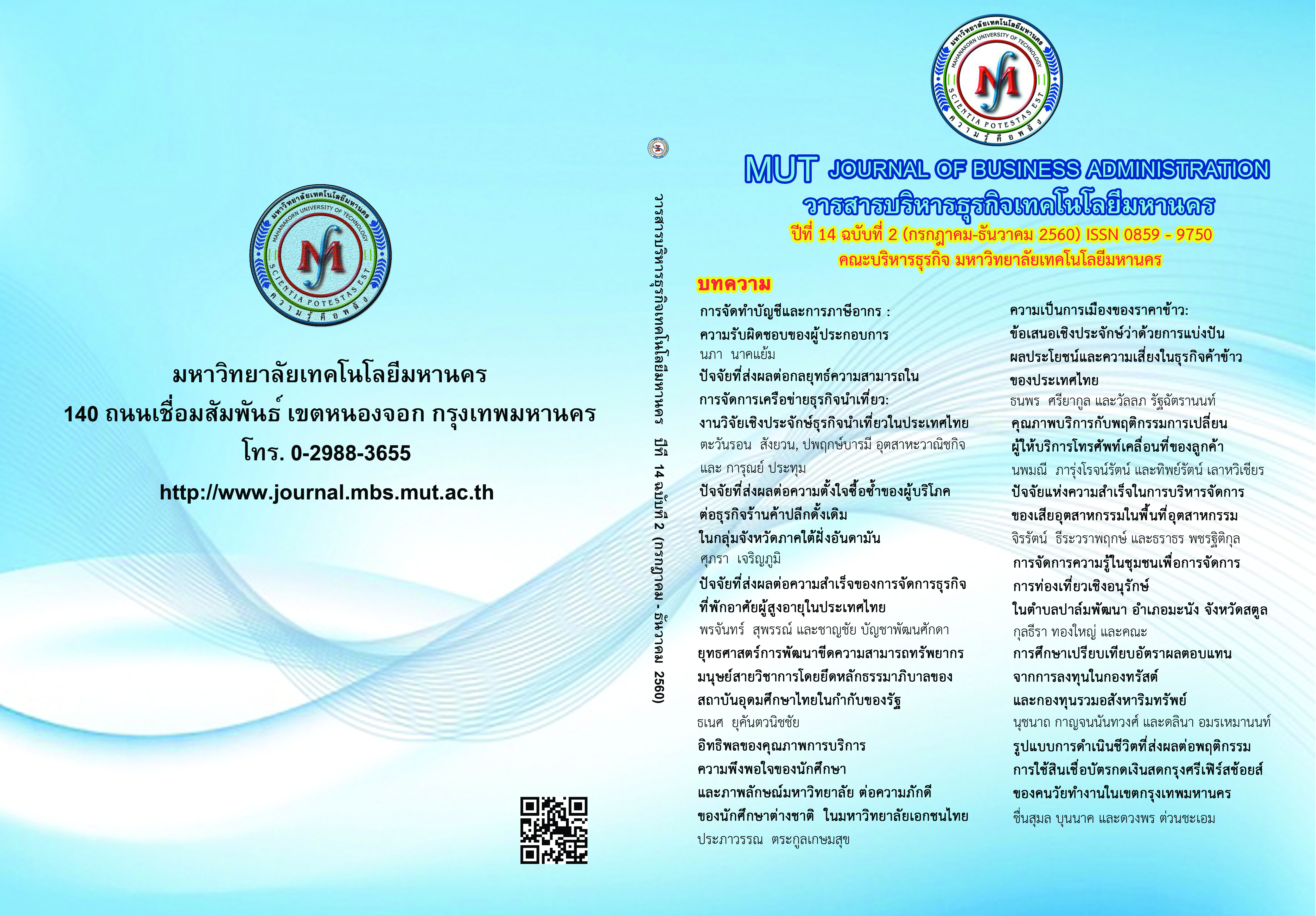The “Political” of Prices of Rice: Empirical Recommendations on Sharing of Benefits and Risks in the Rice Trading Business in Thailand
Keywords:
Populism Policy, Rice Prices, The “Political”Abstract
A number of studies have similarly concluded that domestic prices of rice in Thailand are determined by the world market price. However, as rice is considered a “political product” relating to lots of people, the government must necessarily intervene the domestic market in order to reduce the world market’s influence on domestic prices as well as to maintain balance of pork barreling in the rice trading business. This research, therefore, has the objectives as follows: (1) analyzing effectiveness of the “populism” policy, that is, the paddy pledging and income guarantee for rice farmers programs, in lessening influence of the world market on domestic prices and (2) analyzing the “political” of prices of rice in pork barreling or sharing of benefits and risks arising from fluctuations of rice prices in the rice trading business in Thailand, where the players consist of exporters, millers, and farmers. The researchers applied time series on export prices of milled rice, domestic prices of rice, and domestic prices of paddy during two different timeframes: (1) before the “populism” policy implemented, i.e. from January 2000 to March 2008; and (2) during the time of “populism” policy, i.e. from April 2008 to April 2014. Then, the time series were analyzed by regressions and statistic tests and two results have been found. First, utilizing the “populism” policy has been an effective method in reducing the world market’s influence on domestic prices of rice at around 13.33 percent and in lessening the influence passing onto domestic prices of paddy at around 35.99 percent. Second, the proportion structure of pork barreling or benefit sharing as well as risks from fluctuations of rice prices among exporters, millers, and farmers before the “populism” policy period is 1.8305 : 0.2232 : 97.9463 and during the “populism” policy period is 14.9140 : 30.7461 : 54.3399. Furthermore, different packages of “populism” policy indicates different outcomes of pork barreling, i.e. the first paddy pledging policy’s shares were 9.9003 : 27.15753 : 62.9422; the income guarantee policy shares were 13.5071 : 6.1679 : 80.3250; and the second paddy pledging policy’s shares were 5.0864 : 15.0578 : 79.8558.
Downloads
Published
Issue
Section
License
ข้อความ ข้อคิดเห็น ข้อมูล เนื้อหา รูปภาพ แผนภูมิ แผนผัง เป็นต้น ที่ปรากฏและแสดงในบทความต่างๆ ในวารสารบริหารธุรกิจเทคโนโลยีมหานคร ถือเป็นความรับผิดชอบโดยตรงของผู้เขียนบทความนั้นๆ มิใช่เป็นความรับผิดชอบใดๆ ของวารสารบริหารธุรกิจเทคโนโลยีมหานคร และมหาวิทยาลัยเทคโนโลยีมหานคร
บทความที่ตีพิมพ์ในวารสารบริหารธุรกิจเทคโนโลยีมหานคร ถือเป็นลิขสิทธิ์เฉพาะของคณะบริหารธุรกิจ มหาวิทยาลัยเทคโนโลยีมหานคร หากบุคคลหรือหน่วยงานใดต้องการนำทั้งหมดหรือส่วนใดส่วนหนึ่งไปเผยแพร่ต่อหรือเพื่อกระทำการใดๆ จะต้องได้รับการอนุญาตเป็นลายลักษณ์อักษรจากคณะบริหารธุรกิจ มหาวิทยาลัยเทคโนโลยีมหานครก่อนเท่านั้น


